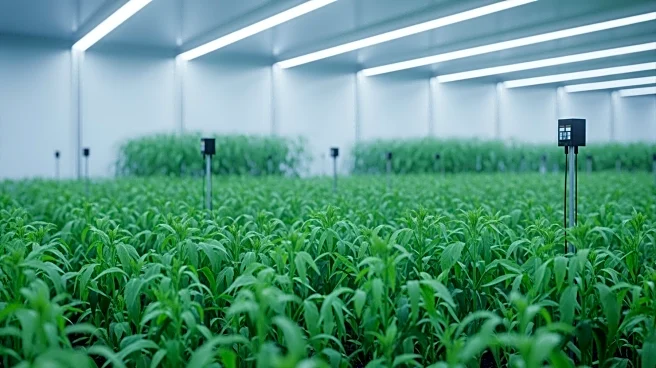What's Happening?
The smart oil crops market is experiencing significant growth, fueled by advancements in precision agriculture technologies. These technologies are reshaping oilseed production to meet global food and
biofuel demands while reducing reliance on imported edible oils. Governments worldwide are implementing initiatives to support this market, such as India's National Mission on Edible Oils - Oilseeds, which aims to boost domestic oilseed production. The U.S. Department of Agriculture (USDA) is focusing on precision farming to enhance productivity and sustainability. Soybean leads the market due to its versatility and adaptability to precision agriculture technologies, with smart farming tools like AI, IoT, and smart machinery gaining traction globally.
Why It's Important?
The growth of the smart oil crops market is crucial for ensuring food security and reducing dependence on imported edible oils. Precision agriculture technologies optimize yield and resource use, addressing challenges like climate change and resource scarcity. The integration of AI and IoT in farming operations enhances productivity and sustainability, positioning smart oil crops as a key enabler of food security. This market evolution supports global efforts to improve agricultural resilience and sustainability, with significant implications for economic stakeholders and policy makers.
What's Next?
The USDA's investment in the National Center for Resilient and Regenerative Precision Agriculture is expected to drive further advancements in smart oil crops. The adoption of smart farming tools is likely to increase, with major projects revealing that up to 60% of farmers have embraced new agri-tech tools. This trend is anticipated to continue, with governments and organizations collaborating to improve sustainability and crop monitoring. The market's growth trajectory suggests ongoing innovation and expansion, with potential for increased international collaboration and investment.
Beyond the Headlines
The rapid adoption of precision agriculture technologies raises questions about the accessibility and affordability of these tools for small-scale farmers. Ensuring equitable access to smart farming technologies is essential for maximizing their benefits and supporting sustainable agricultural practices. Additionally, the ethical implications of AI-driven crop management warrant consideration, as the technology must be used responsibly to avoid potential biases and ensure fair treatment of all stakeholders.









